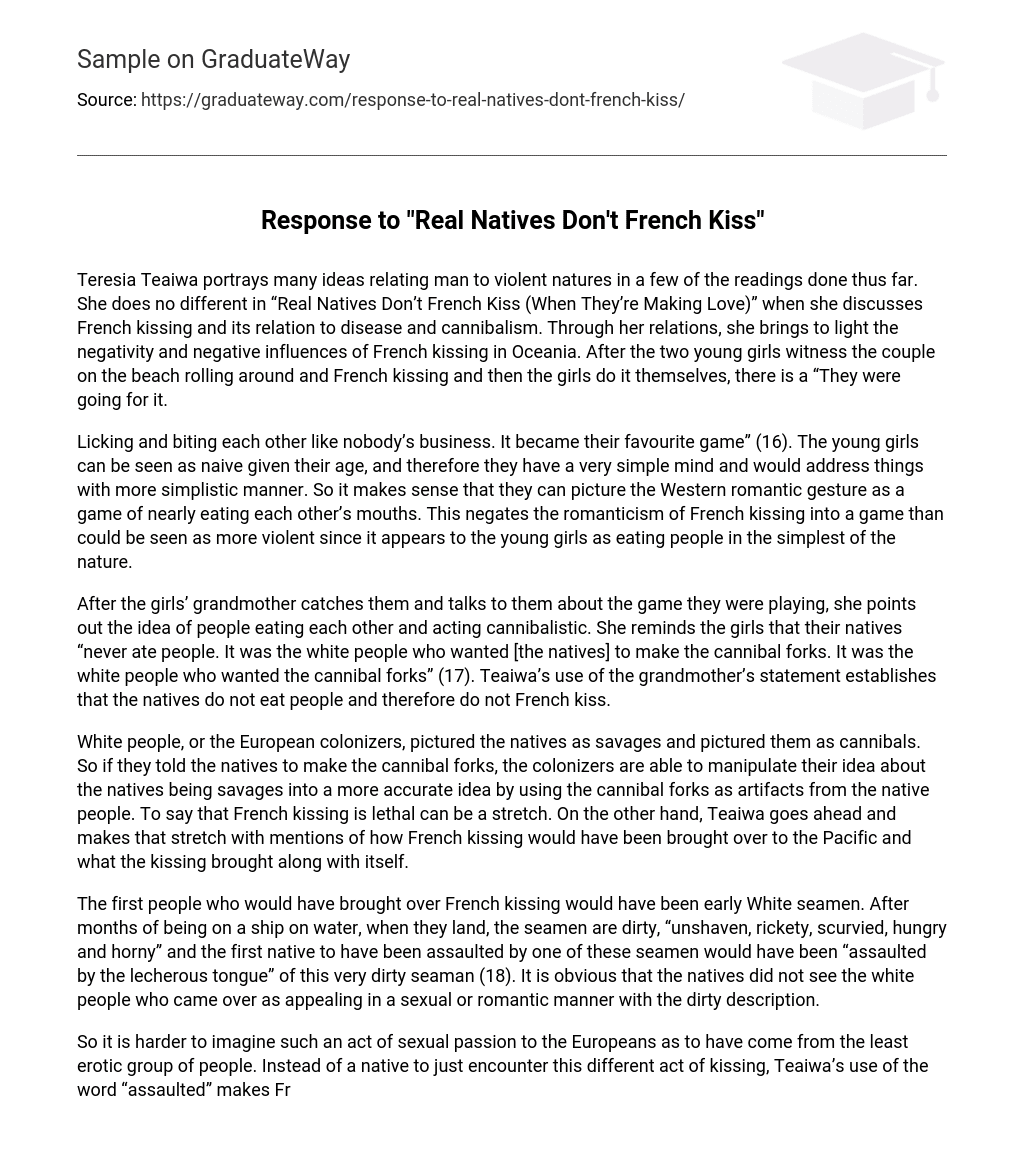Teresia Teaiwa explores the concept of human violence in several readings. This theme continues in “Real Natives Don’t French Kiss (When They’re Making Love),” where Teaiwa discusses the negative implications of French kissing in Oceania, equating it with disease and cannibalism. The presence of French kissing is seen as a negative influence in this context. The text describes how two young girls observe a couple engaging in French kissing on the beach and then imitate their behavior, enthusiastically embracing it.
The young girls’ favorite game is described as licking and biting each other, which they view as a playful act resembling the Western romantic gesture of French kissing. However, their naive outlook and simplistic minds lead them to interpret this game as a violent act of nearly eating each other’s mouths. This perception transforms the romanticism of French kissing into a more aggressive game in the eyes of the young girls.
The girls’ grandmother speaks to them about the game they were playing, mentioning the concept of people consuming each other and displaying cannibalistic behavior. She reminds them that their ancestors were never cannibals, and it was actually the white people who encouraged the creation of cannibal forks. The grandmother’s statement, as used by Teaiwa, demonstrates that the natives do not engage in cannibalism, and therefore, do not engage in French kissing.
The Europeans saw the natives as savages and cannibals. They could manipulate their perception by asking the natives to make cannibal forks, which would serve as evidence of their savage behavior. While it may be a stretch to claim that French kissing is deadly, Teaiwa explores the idea of French kissing being introduced to the Pacific and the consequences it brought with it.
Early White seamen were likely the first to introduce French kissing. After spending months on a ship, these seamen would arrive on land dirty, unshaven, weak, scurvied, hungry, and horny. The first native to encounter one of these seamen would have been assaulted by their lecherous tongue. The natives evidently did not find the white people who arrived in a sexual or romantic way due to their undesirable description.
The Europeans find it difficult to believe that such a passionate sexual act could come from a group of people who are considered the least erotic. When encountering this act of kissing, Teaiwa describes it as being “assaulted”, suggesting that French kissing is seen as aggressive rather than romanticized as Europeans may view it. This aggression can be compared to assault or even rape, just like being eaten. Furthermore, French kissing facilitated the spread of contagious diseases such as influenza and tuberculosis, leading to numerous deaths among the islanders (18).
Today, there are diseases like “herpes simplex B, mononucleosis, strep throat, they’re all, you know, kissing diseases too” (18). The notion that kissing, a simpler act than sexual intercourse, can also transmit various diseases diminishes the romance associated with French kissing and emphasizes its potential for spreading illnesses. Teaiwa’s argument adds a fear factor to French kissing, suggesting that those who engage in it may be exposing the recipient to potential death instead of simply sharing affection. This portrayal gives French kissing more aggressive qualities.





